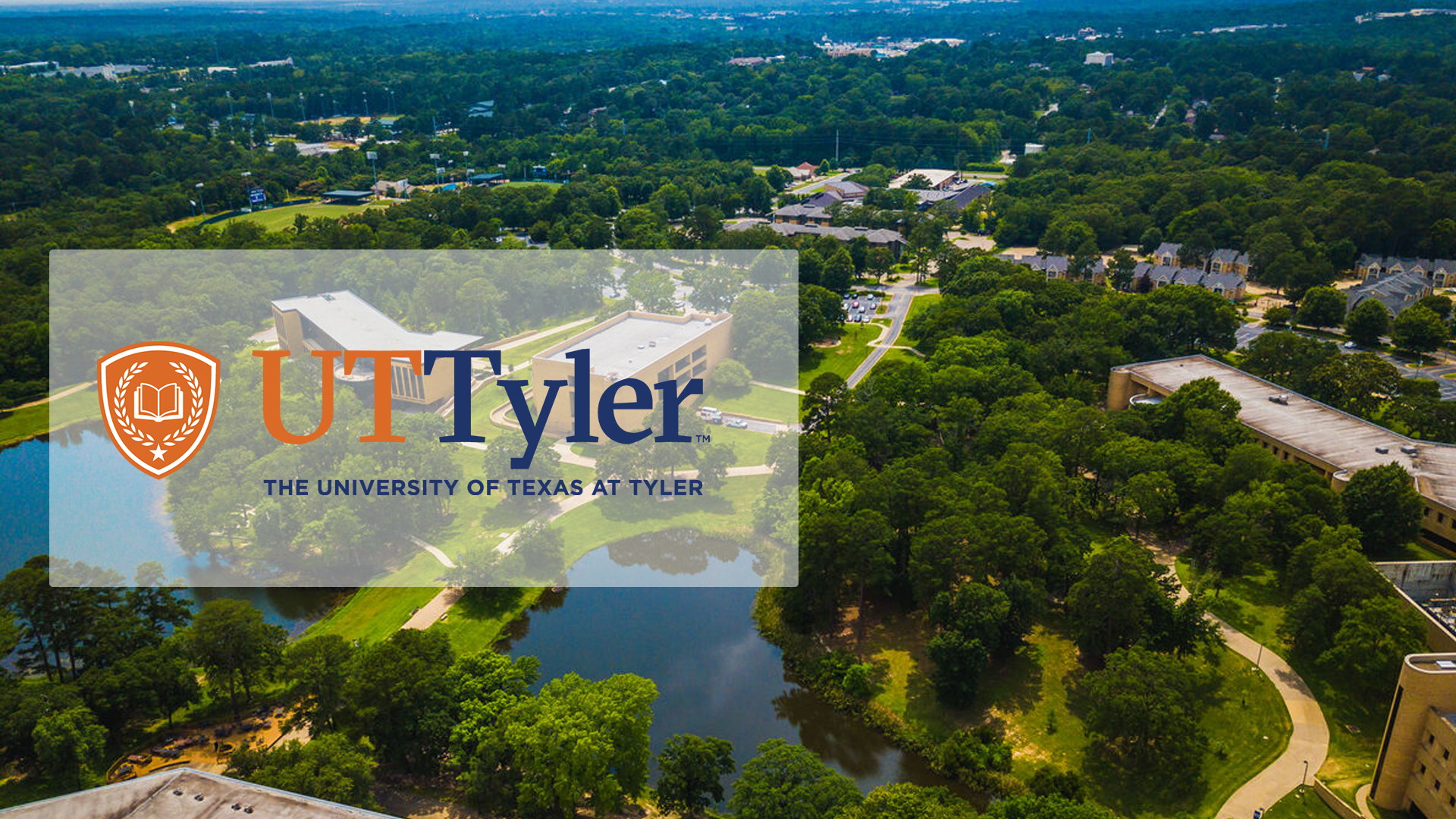
Proactive Support Removes Barriers to Completion at the University of Texas at Arlington
Share this Post
The Challenge: General lack of visibility into students’ needs, limited methods of communication, and technology constraints, lead to inadequate access to personalized academic advising and support.
The Strategy: Putting actionable insights at the fingertips of student success teams allowing them to deliver coordinated, proactive support to students throughout their academic journey.
The Outcomes: With a comprehensive understanding of their students and what drives their success, the UTA team successfully improved graduation rates and empowered students to thrive academically.
The University of Texas at Arlington College of Nursing and Health Innovation (CONHI) is one of the nation’s largest producers of registered nurses, graduating over 45,000 skilled healthcare professionals over the past 50 years. What sets this institution apart is its commitment to embracing the changing landscape of education, catering to a diverse student population with distinct needs. CONHI was the first institution of its kind to offer an accelerated online nursing program, with 70% of its nursing school students now enrolled in online programs and the remaining 30% on campus.

“The Civitas Learning platform helps us identify and capture students in the middle – students who aren’t failing, but aren’t thriving either.”
— Candice Calhoun-Butts,
Assistant Dean of Enrollment and Student Success, University of Texas at Arlington
The Challenge: A growing disconnect between students and the support they need.
In the face of an increasingly competitive job market and the rising demand for well-trained healthcare professionals, the UTA College of Nursing and Health Innovation recognized the urgency of addressing barriers to degree completion. CONHI identified several key issues affecting the ability to effectively support students, including the general lack of visibility into students’ needs, limited methods of communication, and technology constraints, all leading to inadequate access to personalized academic advising and support.
CONHI struggled to find tools to meet the program’s unique needs in supporting a diverse population of online and on-campus students who are simultaneously working in the healthcare field and geographically dispersed across the country. Advising staff relied on outdated data to generate piecemeal reports that only captured a small part of each student’s academic situation. As a result, identifying and successfully engaging with students needing assistance became a constant race against time. Moreover, essential milestones, such as applying for graduation, often slipped through the cracks, highlighting the urgent need for a more effective support system.
“Civitas Learning has created a way for us to combine multiple platforms into one.”
— Candice Calhoun-Butts,
Assistant Dean of Enrollment and Student Success, University of Texas at Arlington
The Strategy: A multi-faceted approach paves the way to proactive, personalized student support.
The First Step: A Unified Student Success Platform
To tackle these challenges head-on, UTA’s College of Nursing and Health Innovation partnered with Civitas Learning to implement a Student Impact Platform that leverages the combined power of data analytics and collaborative workflow tools to break down information silos. Integrating data from various sources, including the Student Information System (SIS) and Learning Management System (LMS), provides a holistic view of each student’s academic journey, including behavioral, demographic, academic, and financial information all in one place.
“Civitas Learning has created a way for us to combine multiple platforms into one,” says Candice Calhoun-Butts, Assistant Dean of Enrollment and Student Services. By breaking down information silos, student success leaders could better understand their students’ needs, proactively identify students facing challenges, and implement timely intervention plans to support them effectively.
Improved Visibility to Identify Students in Need of Support
While access to a single source of knowledge vastly improved UTA’s ability to collaborate across teams, data without action is still just data. CONHI’s program leaders utilized Civitas Learning’s Administrative Analytics tools to surface timely and actionable insights they wouldn’t have been able to see otherwise.
Using persistence and completion predictions, UTA could combine historical data with near real-time engagement insights to pinpoint at-risk students who might not proactively seek support. Candice Calhoun-Butts, Assistant Dean of Enrollment and Student Services, Academic Advising, lauds the Civitas Learning platform for “helping us identify and capture students in the middle – students who aren’t failing, but aren’t thriving either.”
In addition to being able to see and serve students who may not actively seek help, support teams also gain insight into the enrollment, academic, and behavioral factors influencing each student’s likelihood to persist.
Uncover Factors Impacting Persistence
Given the diverse student population and previously siloed student data, CONHI had little understanding of the critical factors influencing each student’s unique academic journey. Civitas Learning’s Administrative Analytics capabilities proved instrumental in empowering administrative leaders to better understand the factors influencing student success.
For example, the nursing program discovered a growing number of students were leaving during a specific transition phase, and it wasn’t clear why. Upon taking a closer look at these students’ change in persistence predictions over time and then understanding the factor impacting a student’s likelihood to persist, advisors could tailor guidance and act quickly to retain students through this transition phase.
“Civitas Learning has that secret sauce that helps us understand persistence and capture students we were losing,” says Calhoun-Butts. With this knowledge, the college could devise targeted retention strategies to keep students on track to graduation.
“Civitas Learning has that secret sauce that helps us understand persistence and capture students we were losing.”
— Candice Calhoun-Butts,
Assistant Dean of Enrollment and Student Success, University of Texas at Arlington
Know What’s Working
With limited resources, UTA faced pressure to prioritize efforts that would make the biggest impact but could not measure the effectiveness of initiatives across campus.
Leveraging initiative analysis capabilities within the Student Impact Platform, administrative leaders partnered with teams across campus to accurately measure the impact of support initiatives and programs like orientation, tutoring services, and more. The analysis found that the online orientation program saw an average 7.4% lift in persistence among participating students.
Understanding which programs and initiatives were ineffective became equally crucial in shaping the college’s support strategies, ensuring that resources were channeled into initiatives that would genuinely make a difference in student outcomes.
Intelligent Workflow Tools Free up Time for Proactive Support
With these new powerful insights at their fingertips, advising teams uncovered endless opportunities to leverage intelligent workflow and case management tools to streamline everyday tasks and free up time for proactive student outreach.
Advising leaders identified a surprising barrier to completion that had nothing to do with academic performance — students in the final stretch of the nursing program were missing critical deadlines to apply for graduation. Before implementing the Civitas Learning platform, student support staff would manually generate a list of students who were eligible to graduate but had yet to apply for graduation. Then, advising staff would email or phone to remind each student of the deadline to apply for graduation. With full-time jobs and numerous commitments, reaching these students through traditional methods like email proved challenging, leading to delays and additional work for all involved.
CONHI now uses Civitas Learning’s Advising Analytics and Workflow capabilities to automate and streamline each step of this process. Advisors can create dynamic groups, or smart lists, to easily monitor students based on customizable factors that may change or update over time. Then, advisors can personalized reminders sent directly from the platform via email or text. In particular, the ability to send text reminders was a game-changer in reaching students enrolled in the online nursing program who are inundated with daily school-related emails.
These simple changes yielded remarkable results.
- Among students eligible to graduate in the fall of 2022, 94 students missed the deadline to apply for graduation and submitted late requests. In a similarly sized graduating class in the spring of 2023, only 47 students missed the critical milestone.
- Even more encouraging is that this year, CONHI only has five eligible students who haven’t yet applied for graduation, compared to 28 students last semester.
Thanks to automated monitoring and multi-channel nudges, CONHI advisors can quickly identify and proactively contact students eligible for graduation, removing administrative barriers and improving the number of students graduating from the nursing program.
Empower Advisors with Real-time Visibility to Engagement Data
One of UTA’s many current focus areas is exploring ways to better support students on probation. Empower faculty advisors to facilitate more productive conversations with students on probation with access to near real-time engagement data for each course, including comparative insights based on peer activity.
With the Student Impact Platform, CONHI can combine data from their SIS, LMS, and other systems across campus to surface near real-time engagement insights, providing advisors and other support staff a complete picture of each student’s current situation precisely when needed.
This new level of insight allows advisors to see exactly where students are, understand the nuance of their challenges, and offer targeted support.
Connect Faculty and Advisors to Provide a Unified Student Support System
To better connect faculty and advisors to provide a unified support system for students, UTA uses the Student Impact Platform to create a collaborative workspace between students, faculty, and advisors.
A common challenge UTA faculty face is knowing which students need engagement and when. The platform provides faculty with new visibility into relevant student data. It can suggest nudges based on set criteria, ensuring every student receives the help they require to thrive academically. The platform’s LMS integration removes the inconvenience of navigating multiple systems, streamlining faculty workflows, and improving the cadence and quality of engagement between students and faculty. It also provides a connected support system for students, creating a collaborative workspace between students, faculty, and advisors.
The ability to communicate with students from a centralized platform also makes it easier for faculty to send encouragement to students who require support and also to students who are succeeding.
The Outcomes: Comprehensive insights remove hidden barriers to graduation.
With personalized support for every student, real-time visibility into engagement data, and the ability to uncover critical factors impacting persistence, the University of Texas at Arlington now boasts higher graduation application rates and a more engaged and thriving student community.
By partnering with Civitas Learning, UTA’s College of Nursing delivered on its promise to leverage innovative technology to implement data-activated strategies to drive meaningful change in student outcomes. Putting actionable insights at the fingertips of student success teams allows UTA to deliver coordinated, proactive support to students throughout their academic journey.
With a comprehensive understanding of who their students are and what drives their success, CONHI successfully improved graduation application rates, empowered students to thrive academically, and ensured a steady supply of well-qualified nursing professionals in the healthcare sector.


